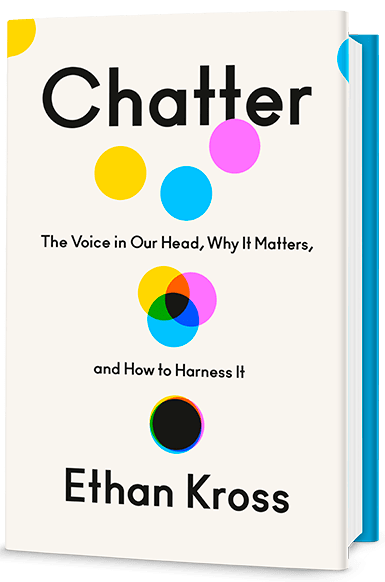Posts Tagged ‘environment’
Shape your environment, shape your mind
One of the biggest contributors to our happiness is something we barely pay attention to: the voice inside our own heads. As psychologist Ethan Kross describes in his new book Chatter, that voice is constantly analyzing the situations we’re in, reflecting on the past and future, and telling us who we are. While sometimes friendly and…
Read MoreCan You Outsmart Your Genes? An Interview with Author Richard Nisbett
While the debate over intelligence rages on many fronts, the battle over the importance of heredity rages loudest. It’s easy to see why. If the camp that argues intelligence is 75 to 85 percent genetically determined is correct, then we’re faced with some tough questions about the role of education. If intelligence is improved very…
Read MoreChange Your Environment, Change Yourself
(Editor’s note: one of the most common enemies of getting quality cognitive exercise is being on “mental autopilot”. I recently came across an excellent new book, titled The Daily Trading Coach: 101 Lessons for Becoming Your Own Trading Psychologist, by trading performance expert Dr. Brett Steenbarger, which explicitly calls for addressing the “mental autopilot” problem…
Read MoreEpigenetics: Nature vs. Nurture?
In yesterday’s interview with Michael Posner, he says: — “There is a growing number of studies that show the importance of interaction between our genes and each of our environments. Epigenetics is going to help us understand that question better, but let me share a very interesting piece of research from my lab where we found…
Read MoreCognitive, Brain News RoundUp
Interesting recent news: 1) A Paradigm Shift in Genetics (Philadelphia Inquirer) 2)  Conference on Brain Development and Learning: Making Sense of the Science (thanks Pete) 3) 1 in 5 veterans found with mental disorder (Boston Globe) 4) Common Medications May Harm Memory in Older People (U.S. News & World Report) 5) Men More Likely to Develop Cognitive Problems (Forbes) For more…
Read MorePeace Among Primates- by Robert Sapolsky
(Editor’s Note: One of the most original minds we have ever encountered is that of Robert Sapolsky, the Stanford-based neuroscientist, primatologist, author of A Primate’s Memoir, and more. We highly recommend most of his books. Above all, for anyone interested in brain health, this is a must read and very fun: Why Zebras Don’t Get…
Read More
